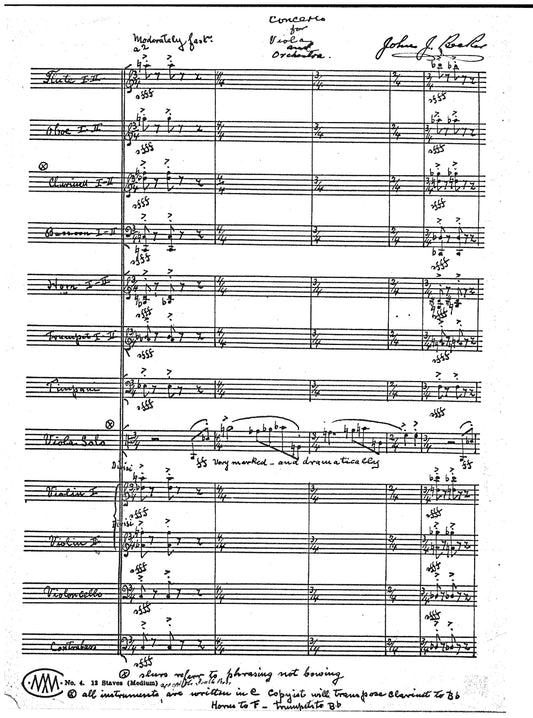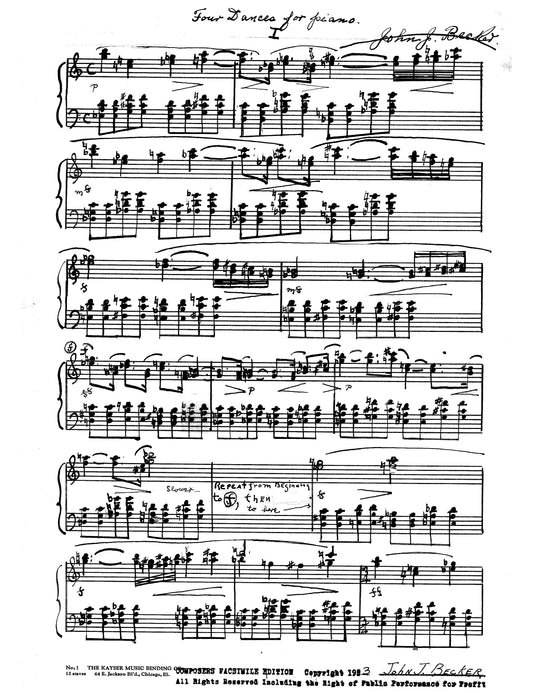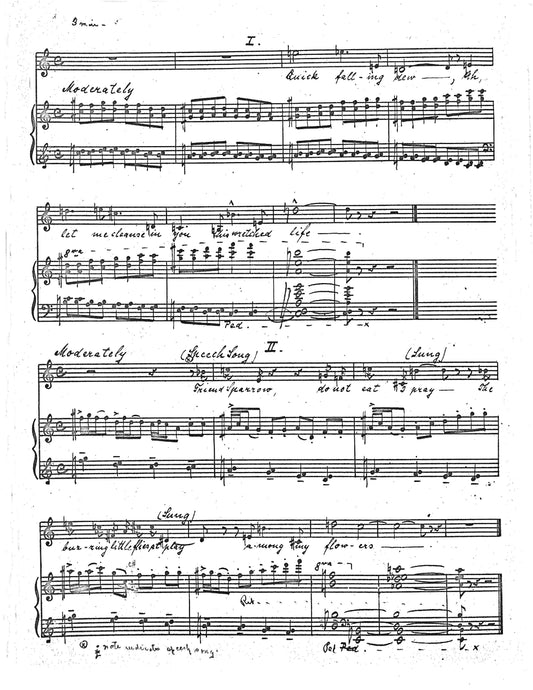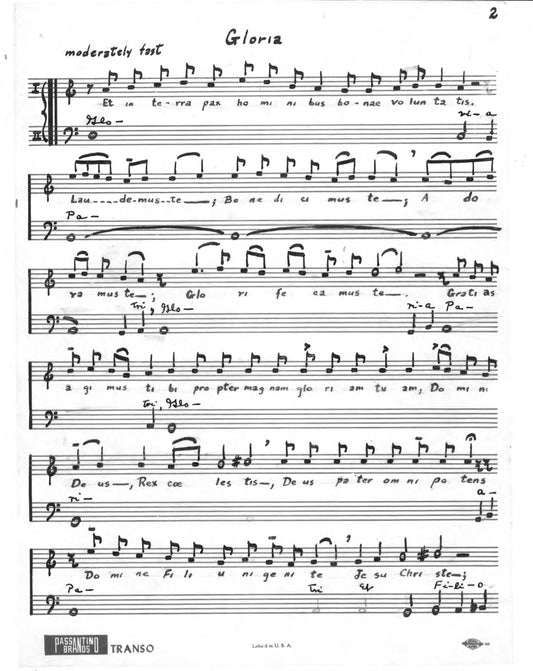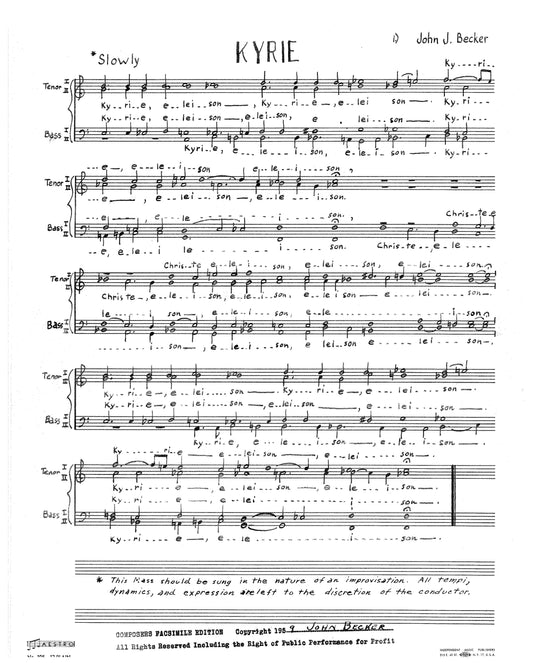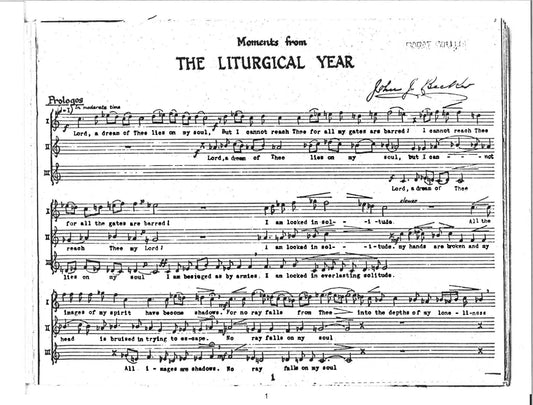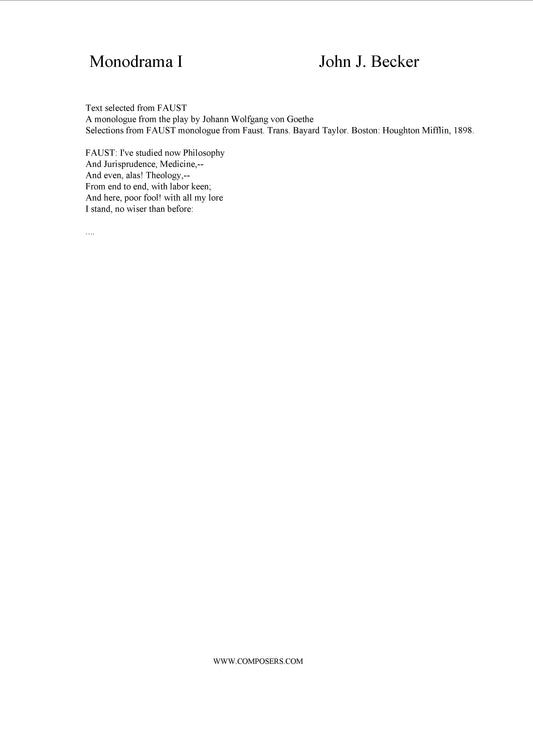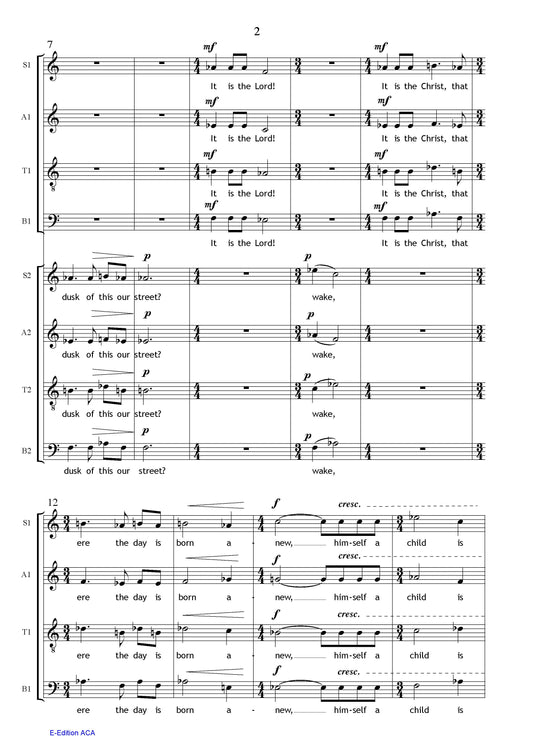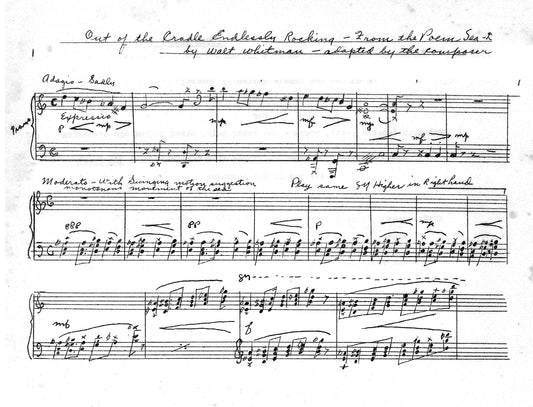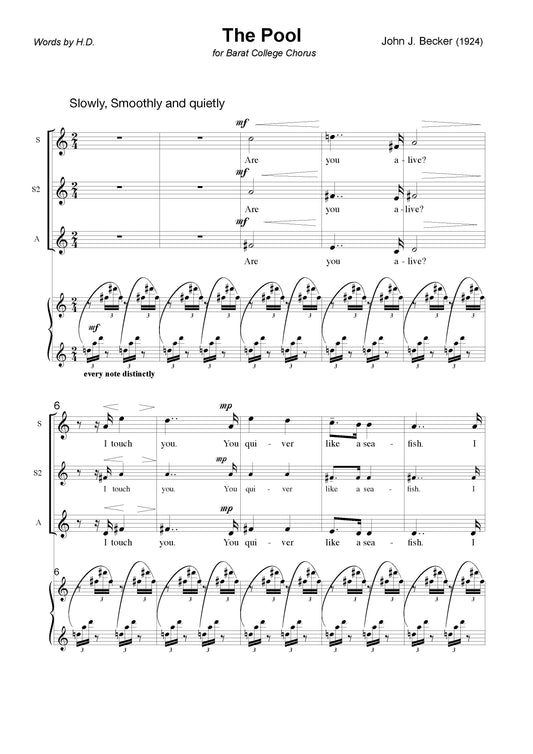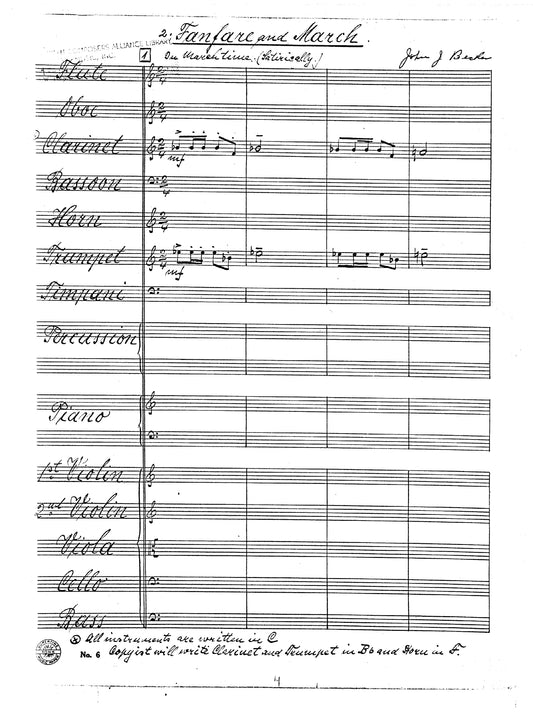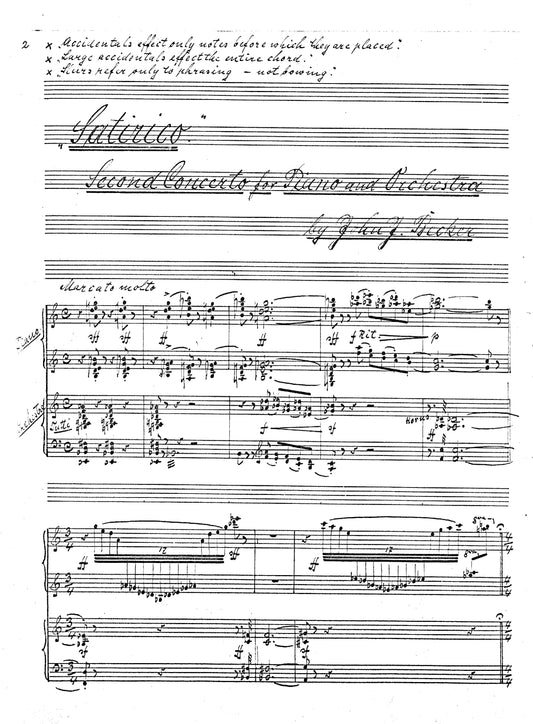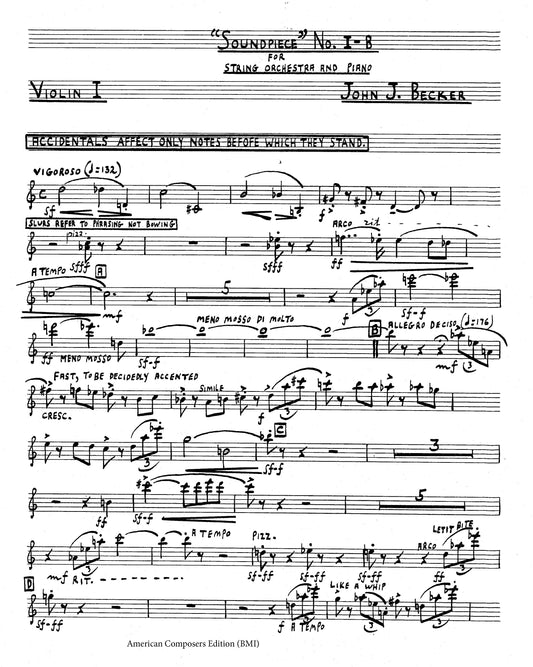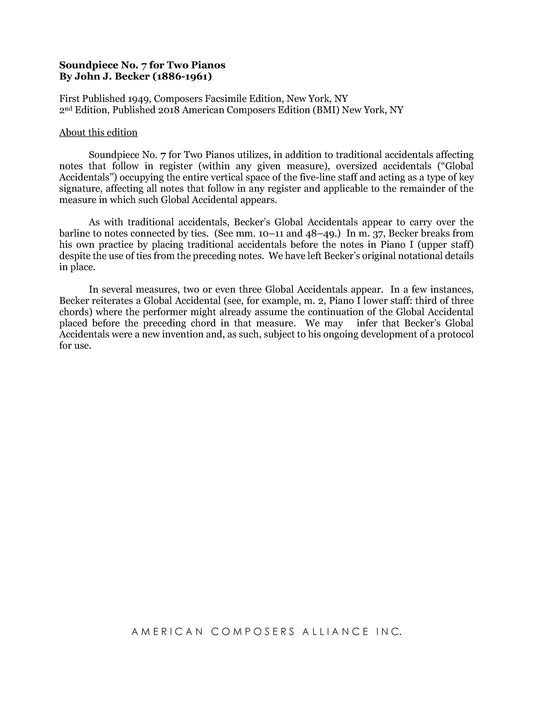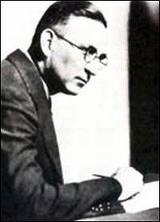
Becker, John J.
1886 - 1961
(b. Henderson, Ky., January 22, 1886; d. Wilmette, Ill., January 21, 1961) was an American composer, often grouped with Charles Ives, Carl Ruggles, Henry Cowell, and Wallingford Riegger as "The American Five" of "ultra-modern" music.
Becker was closely befriended with Ives, who entrusted to him the orchestration of his enormous visionary song, General William Booth Enters into Heaven. He belongs to the ‘American Five’ of early modernism – but his music has remained the least known. He taught at Barat College on Lake Michigan.
from NYPL Archives website:
Becker is known as leader of an ultramodern, arguably dissonant, distinctly American style of music that broke away from European styles of composition. Along with the other four of the “American Five” (Charles Ives, Henry Cowell, Carl Ruggles, and Wallingford Riegger) he shattered preconceived notions of composition, employing difficult techniques of counterpoint and harmony. Becker wrote seven symphonies, as well as concertos, orchestral suites, songs, and choral works (especially religious works). In Musicalia (ca.1931), Henry Cowell explains that Becker “bases his style on the art of the great early vocal polyphonists of the Catholic Church - Palestrina, Vittoria, etc.”. He named many works “soundpieces”, a literal English translation of the word “sonatas” - which gives an indication of the principles on which he based his work. Among his notable works, A Marriage with Space (1935) is often cited as most representative of his ideas of new forms for the stage by incorporating sound, light, dance, and poetry. He was honored late in his career (1958) when his Symphonia Brevis (written in 1930-1931) was performed at Carnegie Hall as part of Bernstein’s series on important American composers. John J. Becker died on January 21, 1961, one day before his 75th birthday.
-
John J. Becker
CONCERTO ARABESQUE (Piano and small orchestra_
Piano solo; fl, ob, cl, bsn, cbsn, hn, tpt, 5-pt strings
$43.50 -
-
-
-
-
-
-
-
John J. Becker
MOMENTS FROM THE LITURGICAL YEAR
solo speaker; speaking chorus; chorus; soloist
$2.00 -
-
-
-
John J. Becker
OUT OF THE CRADLE ENDLESSLY ROCKING
This score, a reduction for voices and keyboard. Narrator, S, T, satb ,orch 2-2-2-2; 4-2-0-0, timp, str
$39.50 -
-
-
-
-
-
John J. Becker
SYMPHONIC MOVEMENT (AMERICANA IV) SET OF PARTS only
2+pic-2+eh-2+bscl-3+cbsn 4-2+2+btbn-1 timp, pf, harm, strings
$18.50 -
John J. Becker
SYMPHONY 6, Out of Bondage
nar, chorus & orch:2-2-2-3-cbsn, 4-2-3-1, timp,perc,str ACA has parts only
Archival
-
-



